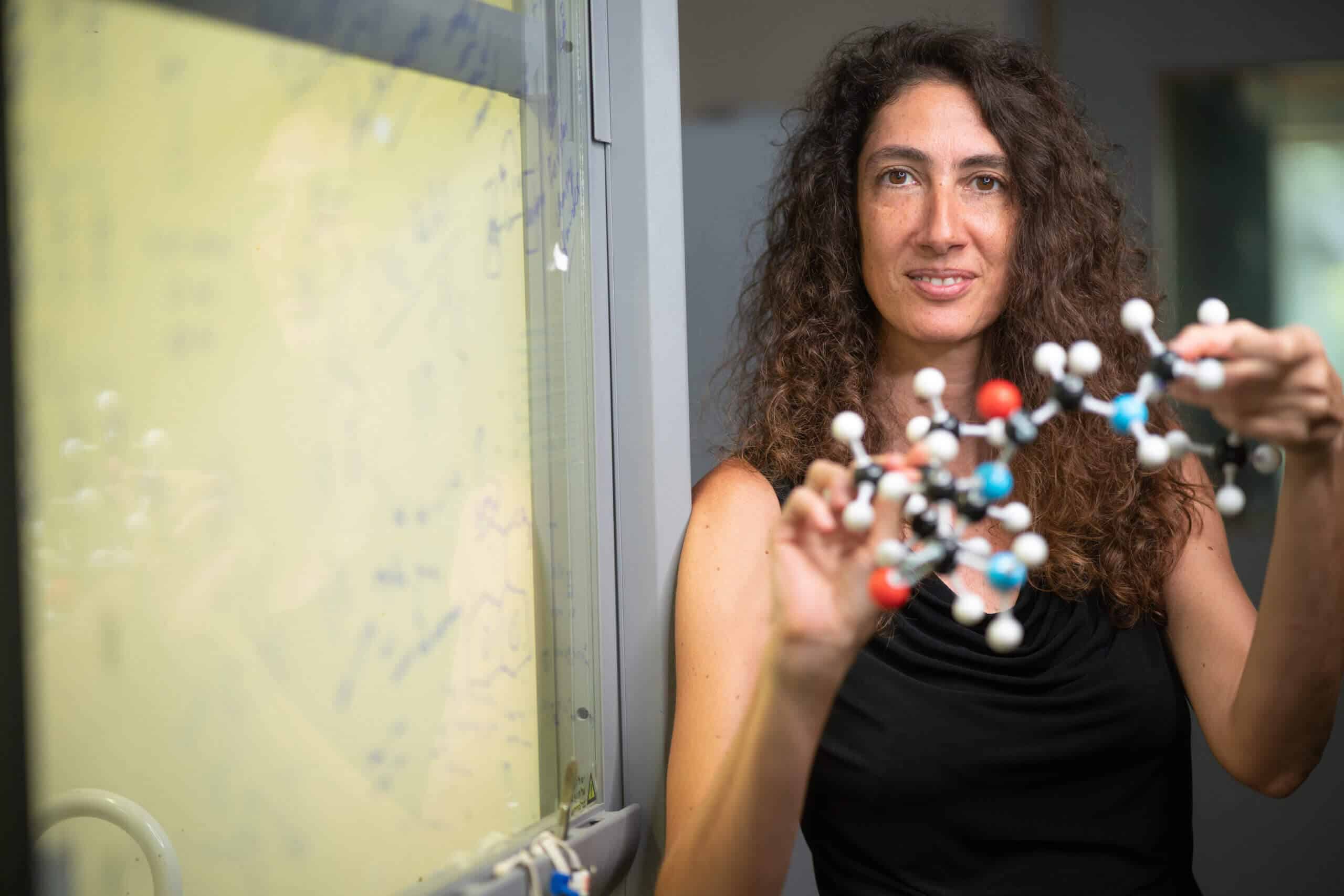Researchers at the Faculty of Chemistry at the Technion have developed a new system for producing hydrogen from water with low energy investment and using available and cheap materials

Water electrolysis is an easy way to produce hydrogen gas, which is considered a clean and renewable fuel. However, effective electrolysis currently requires a significant voltage difference, high pH and in most cases catalysts based on an expensive metal such as ruthenium. Due to the promise inherent in hydrogen, many research groups are pursuing the development of electrolysis technologies that will make it possible to produce hydrogen fuel at a low voltage difference, at a pH between 7-9 and by catalysts based on available and cheap metals such as copper, manganese and cobalt.
Newspaper Journal of the American Chemical Society reports on a unique solution developed at the Technion; This is the fastest system of its kind reported so far and operates on readily available metal (copper) catalysts. The research was led by Prof. Galia Mein, the head of the biomimetic chemistry laboratory at the Shulich Faculty of Chemistry, and the doctoral student Guilin Rowan.
The Technion researchers designed and developed a homogeneous electrolysis system, that is, a system in which the catalyst is soluble in water, so that all the components of the system are in the same medium. It is an innovative and original system based on (1) copper ions; (2) a peptide-like oligomer (small molecule) that binds the copper and maintains its stability; and (3) a compound called borate whose role is to maintain the pH within a limited range. The main discovery in this study is the unique mechanism that the researchers discovered and demonstrated in the study: the borate compound helps stabilize the metallic center and participates in the process so that it helps to catalyze it.
In previous studies, the research group demonstrated the effectiveness of using peptide-like oligomers in stabilizing the metal ions exposed to oxygen - exposure that could oxidize them in the absence of the oligomer and break down the catalyst. Now the researchers report success in creating a very efficient and fast electrolysis system. It is a stable system that breaks down water into hydrogen and oxygen under the same desired conditions: low voltage difference, pH close to 9 and cheap catalysts. According to Prof. Mein, the system was developed inspired by enzymes (biological catalysts) that use the peptide chain of the protein to stabilize the metallic center and inspired by natural energy processes such as photosynthesis, which are driven by units that utilize solar energy to transport electrons and protons.
The research was supported by the National Science Foundation (ISF) and the Technion Grand Energy Program.
for the article in the journal Journal of the American Chemical Society
More of the topic in Hayadan:
- Innovative zinc battery for storing renewable energy
- A cheap method to produce hydrogen fuel with the help of carbon nanotubes
- A catalyst for oxidizing water derived from plants - an effective means of producing hydrogen
- Recycling of precious metals from batteries of electric vehicles
- What is between volcanoes, smart phones and the digital age?

10 תגובות
It seems that the Chinese stole them the day after (look at the date of the articles)
Where is Israel in researching the production of hydrogen from water, in relation to powers such as Japan and Germany, which have been researching the matter of producing hydrogen at low costs for years. And what about these powers that invest huge capital not to recognize Israel's breakthrough?
Very beautiful things.
What is the usefulness of this process? Is it significantly higher than the efficiency of existing processes?
Does the process significantly reduce the cost of the necessary equipment and materials?
These are the important things that will determine whether this work will become a large-scale process that will benefit the public or will remain a beautiful work that a minority of people read about.
Only this was missing, instead of taking advantage of the sun's energies, humanity will dismantle the oceans for energy needs, until they disappear completely.
Then instead of water - humanity will move to drinking sand
My late father was involved in the development of adhoc hydrogen production system for cars so that they could run only on water, reaching 50% fuel savings. He developed a method for electrolysis while moving that produces exactly the amount required for the engine, for this purpose he developed an efficient method for electrolysis, but the principle is different from what is described here but was based on a different parameter than the electrical potential difference
There is a publication about a Chinese team that developed a cheap process to produce hydrogen
https://www.sciencedaily.com/releases/2021/09/210910121225.htm
Sharing or copying?
Borate compound from Kazakhstan?
https://youtu.be/gpQWjvet9o4
Producing hydrogen will always require more energy than the hydrogen will produce. Even if the energy is green energy, direct use of this energy is still more efficient than producing hydrogen and then using hydrogen. What is more, the use of hydrogen will allow the use of airplanes and ships and trucks and tractors and also the transportation of hydrogen from the places of production from renewable, green and cheap sources.
I would be happy to understand in a language more understandable to a layman,
What is the discovery, and what is the cost of production in this way.